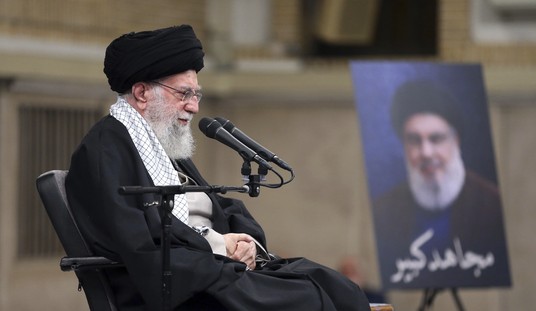True success is not determined by having attained a position of authority or influence. True success is determined in positive accomplishments and the legacy that remains after that person has moved on. On January 26th, when Lieutenant Colonel Leo McCloskey died due to complications from pneumonia, he concluded his work in a legacy of accomplishments that will benefit many people for generations to come.
Upon graduating from Northeast Missouri State University in 1972, Leo was commissioned as a second lieutenant in the United States Army. Active-duty assignments took Leo and his wife Sarah first to Fort Leonard Wood, Missouri, then on to Heidelberg, Germany. His departure from active duty did not end his service to America. Leo transferred into the National Guard and continued to advance through the ranks until his retirement in 1998. In civilian life, he served as an Emergency Medical Technician (EMT) and a firefighter.
When his country was attacked on 9-11, Leo was determined to ride to the sound of the guns and answer the battle cry of freedom. His request for returning to active duty was answered in 2006. As he had done all his life, Leo once again put himself at risk for the safety, security, and welfare of others.
No group of people know this better than the Iranian dissidents from Camp Ashraf, Iraq. In 2008, Leo was assigned to be the base commander. For five years, 3,000 members of the Mujahedin-e Khalq (MeK) had been trapped at Ashraf since the fall of the Iraqi government. Being the primary dissident organization to Saddam’s arch enemy, Iran, they had been allowed to have a military presence in Iraq. Their fight was strictly with the religious extremists in Tehran.
When the U.S. Army arrived, the MeK developed a very cordial relationship with it. In return, they were granted Protected Person Status under the 4th Geneva Convention. Unfortunately, despite in-country American military and State Department presence, the Iraqi government came under the control of Iranian loyalist Prime Minister Nouri al-Maliki.
Recommended
While the U.S. State Department was attempting to appease Iran and Iraq in every way possible, the U.S. military was pushing back. Warrior ethics mandate that agreements and pledges forged in combat are like swords made of steel, not to be bent nor cast aside.
While serving as Ashraf commander, one day Leo received word from the main gate that Iraqi agents had shown up with a list of fifty resistance leaders. They were demanding Ashraf leaders to be turned over to them. The intent of the Iraqi agents was to immediately turn the leaders over to the Iranian government for imprisonment, torture, and execution. This act would also have decimated the structure of the dissident organization inside Ashraf.
Leo arrived at the gate, took possession of the list, and ordered his military police soldiers to remove the Iraqi agents from Camp Ashraf. The Iraqi agents failed in taking custody of the resistance leaders. By keeping the list in his custody, Leo had possession of critical intelligence. Iran had exposed the names of the people they feared the most. Some of the people identified on the list were not inside Ashraf. That revealed an Iranian intelligence failure. The Iraqi agents left Ashraf not with dissidents in their custody, but with a thorough understanding that if Iraqis or Iranians tried to hurt the residents, Leo would turn his soldiers loose on them. Leo’s message echoed all the way back to Baghdad and Tehran. Compared to American warriors, both Iraqi and Iranian military forces have never been more than third-rate amateurs.
Against warnings from the U.S. military, in 2009 State Department turned security of the Ashraf residents over to the Iraqi government. Leo had long since completed his tour of duty at Ashraf when the murderous attacks of 2009, 2011, and 2013 were launched by the Iraqi army, embedded with Iranian agents.
From stateside, Leo dedicated himself to getting the Ashraf residents to safety. Warrior ethics and his own deep level of integrity prevented him from remaining silent. Not giving up the fight for the lives of the people he vowed to defend, Leo engaged members of the U.S. Congress and European Parliaments. He wrote newspaper articles and participated in letters sent to senior members of numerous governments and the United Nations. Leo spoke at numerous events in the United States and Europe and played an important role in exposing Tehran’s demonization campaign against the MeK.
His time in Ashraf, Iraq, and his interactions with the residents profoundly impacted his life. He confided that witnessing the deadly attacks on defenseless residents by Iraqi forces deeply troubled his conscience, leading to restless nights after leaving Ashraf. He felt that the State Department had betrayed the residents by going back on its promise to protect them after they had surrendered their weapons, which had been their means of self-defense.
The combined pressure of dignitaries from around the world, armed with information provided by Leo and many others, resulted in the U.S. Government teaming with the United Nations to transfer the residents completely out of Iraq and to safety in Albania. When Leo travelled to Albania to visit with the residents at their new Ashraf in 2019, he was recognized as their hero.
Lieutenant Colonel Leo McCloskey has now passed from our ranks. Not only among the Iranians determined to have democracy in their country, but also through the people Leo saved as an EMT and firefighter, the soldiers he led, the people he influenced, and his family in which mutual love was shared, Leo achieved true success. His positive accomplishments and legacy are permanent.

























Join the conversation as a VIP Member